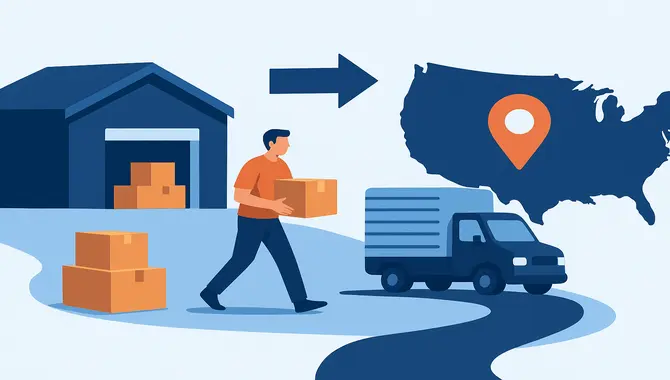
Expanding internationally is one of the biggest milestones for any growing brand. Startups with investment, consolidated companies, and fast-scaling ecommerce players often look to the U.S. market as the next natural step. With high purchasing power, a mature ecommerce ecosystem, and the ability to generate credibility with investors, selling in the United States can transform a local success into a global story.
But what most brands don’t realize at first is this: the true key to scaling in the U.S. is not just marketing—it’s fulfillment.
In this post, we’ll explore why warehousing, fulfillment, and last-mile logistics in the U.S. are critical for internationalization, how they impact conversion rates on ecommerce platforms and marketplaces, and how solutions like Merchant of Record (MoR) help eliminate compliance headaches.
Why fulfillment matters more than you think
For many brands in LatAm, Europe, or Asia, internationalization often starts by shipping products directly to the U.S. from their home country. While this may work for small volumes, it quickly becomes a problem when demand increases:
- Long delivery times
- High international shipping costs
- Customs and duties complexity
- Lower conversion rates
Customers in the U.S. expect 2 days shipping, not weeks.
Direct shipping eats into margins.
Every shipment risks delays and hidden costs.
Shoppers abandon carts when shipping is slow or expensive.
In contrast, storing inventory in the U.S. through warehousing and fulfillment centers changes the game. It allows your brand to meet U.S. consumer expectations, compete directly on your own ecommerce, and scale without logistical friction.
The benefits of U.S.-based fulfillment
Having a fulfillment partner in the U.S. offers clear and measurable advantages for international brands:
- Warehousing close to your customers
- Optimized picking & packing
- Faster last-mile delivery
- Better marketplace performance
- Scalability for high-volume sellers
Your inventory is stocked in strategic locations, reducing shipping costs and delivery times. This translates into better customer satisfaction and higher conversion rates.
Professional fulfillment centers use technology to manage orders efficiently, prepare packages to marketplace standards, and reduce operational errors.
Partnering with U.S.-based carriers ensures your orders arrive quickly and reliably, meeting the expectations of American consumers used to fast delivery.
Platforms like Amazon and TikTok Shop reward fast shipping with better visibility and rankings. Fulfillment is not just logistics—it’s also a growth strategy.
When your business grows, fulfillment infrastructure can scale with you, supporting thousands of monthly orders without adding operational chaos.
The hidden compliance barrier: payments and regulations
One of the biggest challenges in crossborder ecommerce is not just moving products—it’s compliance. Selling in the U.S. requires navigating:
- Sales tax registration across multiple states.
- Import regulations and customs paperwork.
- Legal responsibility for products sold.
This is where the Merchant of Record (MoR) model comes in. By acting as the legal seller of your products in the U.S., a MoR partner takes care of:
- Tax and compliance management.
- Payment processing in local currency.
- Regulatory paperwork.
This allows your brand to focus on marketing and growth, while your MoR partner ensures everything is compliant and friction-free.
Real-life scenario: scaling a fashion brand from Brazil
Let’s imagine a fashion brand from Brazil that already sells successfully on Mercado Libre and TikTok Shop. The brand has high local demand and investors pushing for U.S. expansion.
Without U.S. fulfillment, the challenges are obvious:
- International shipping delays discourage U.S. buyers.
- High return costs eat into profits.
- Managing taxes and compliance remotely is overwhelming.
With U.S.-based warehousing and MoR:
- Inventory is stored in the U.S., enabling 2–3 day delivery nationwide.
- Orders placed on Amazon or TikTok Shop are fulfilled seamlessly.
- The Merchant of Record ensures taxes, payments, and compliance are fully covered.
The result? The brand goes from a regional success to a global player, scaling faster and with fewer risks.
How fulfillment impacts ecommerce conversion rates
The link between fulfillment and sales is direct. Studies show that:
- 84% of U.S. consumers say delivery speed is a major factor in choosing one retailer over another.
- Checkout abandonment rates increase by up to 50% when shipping costs are high or delivery times are long.
- Marketplaces like Amazon prioritize sellers who meet strict fulfillment standards, rewarding them with more visibility.
For international brands, this means fulfillment is not just logistics—it’s revenue.
Steps to prepare your brand for U.S. fulfillment
If your company is ready to expand into the U.S., here are practical steps to get started:
- Assess your product-market fit
- Choose the right fulfillment partner
- Plan inventory management
- Monitor performance metrics
Use tools like Amazon Market Research or TikTok Ads to validate demand.
Look for providers that offer warehousing, last-mile delivery, and MoR services.
Start with test shipments to the U.S. before scaling to larger volumes.
Track delivery speed, customer reviews, and cart conversion rates to optimize your strategy.
Fulfillment as your competitive edge
For startups with investment, consolidated brands, and companies looking to scale, U.S. fulfillment is the hidden key to international growth. It enables faster delivery, higher conversion rates, and compliance peace of mind—all while positioning your brand to compete head-to-head with local U.S. players.
Internationalization doesn’t have to be full of friction. With the right warehousing, fulfillment, and Merchant of Record partner, your brand can expand into the U.S. seamlessly and turn local success into sustainable global growth.
